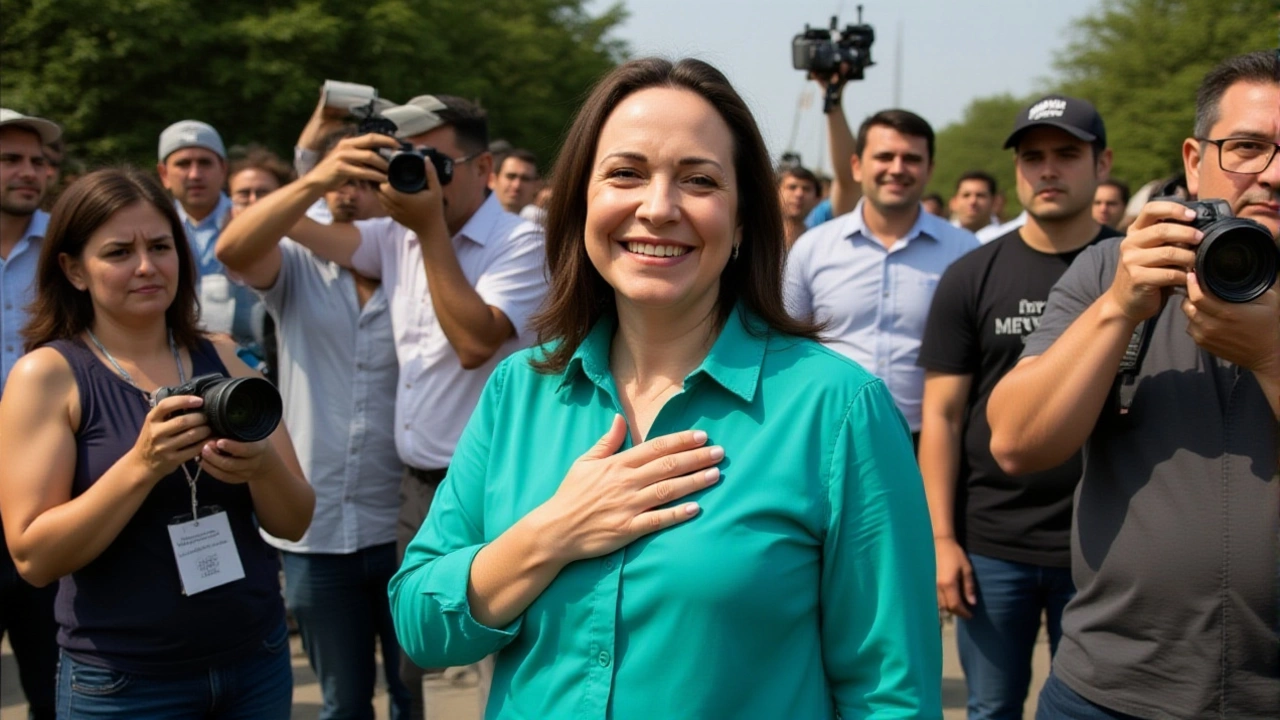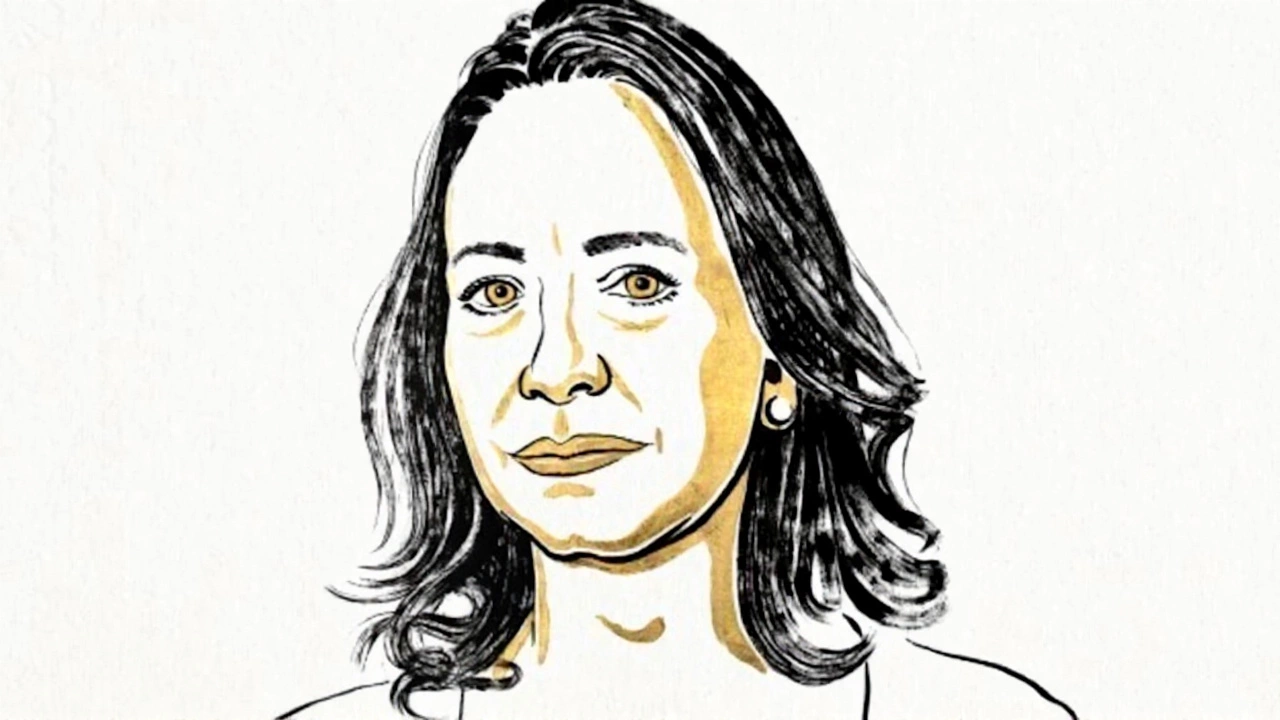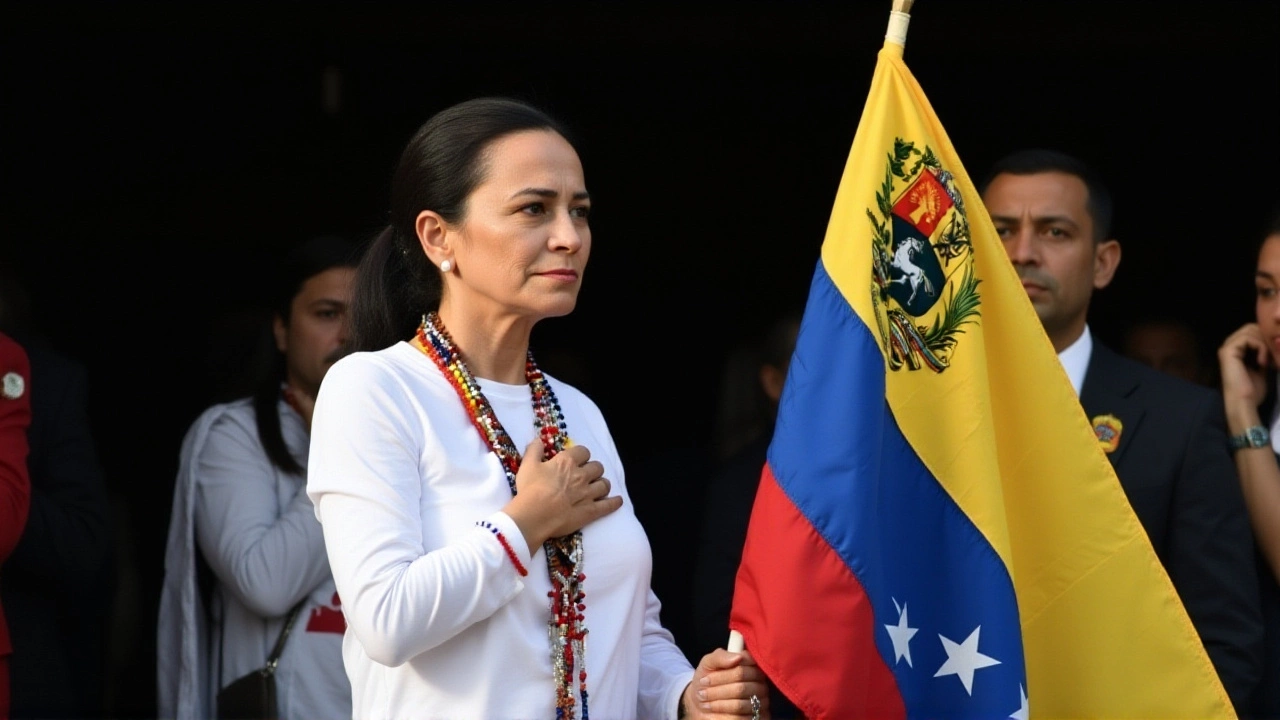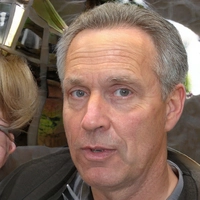When María Corina Machado, National Coordinator of Vente Venezuela, was hailed by the Nobel Committee as a unifying force, the news rippled through Caracas and the wider diaspora. The committee’s brief YouTube video, posted on October 8, 2025, framed Machado as the opposition’s "Iron Lady" and urged the world to watch her continued fight for democratic rights. In the same clip, the committee referenced the broader struggle against Nicolás Maduro’s authoritarian rule, a theme that has defined Venezuelan politics for more than a decade.
From Student Activist to Opposition Symbol
Machado’s political trajectory began in the early 2000s, when she co‑founded the liberal movement Vente Venezuela. Officially registered on August 17, 2013, the party quickly grew into a nationwide network with 335 municipal committees spanning all 23 Venezuelan states. In the 2010 legislative elections, she won a seat in the National Assembly with the highest vote count of any candidate—a record 2.7 million votes, according to the National Electoral Council (CNE). Her tenure (December 5 2010 – March 21 2014) was marked by sharp criticism of the Maduro regime’s handling of the economy, the humanitarian crisis, and systematic human‑rights violations.
In March 2014, Machado took her protest to the Organization of American States (OAS) Permanent Council in Washington, D.C. The address, delivered on March 17, emphasized the need for international pressure on Caracas. The following week, Diosdado Cabello, then President of the National Assembly, expelled her in a move deemed unlawful by the Inter‑American Commission on Human Rights. The expulsion sparked the 2014 protests that lasted until May, resulting in 43 deaths according to Foro Penal.
Nobel Committee’s Praise and Its Symbolic Weight
The Nobel Committee’s statement, released in a 2‑minute video titled "Who is María Corina Machado, Venezuela’s ‘Iron Lady’?", highlighted three key reasons for the endorsement: her steadfast commitment to democratic principles, her ability to rally diverse civil‑society groups, and her personal courage in staying in Caracas despite constant threats. The committee quoted her 2023 Yale World Fellows profile, noting that "she stood out as one of the strongest and most critical voices" against institutional abuse.
While the Nobel Peace Prize itself was not awarded to Machado, the committee’s public commendation carries weight similar to a laureate’s endorsement. It amplifies her platform on the global stage, potentially opening new diplomatic channels for the opposition. "The twist is," a political analyst at Universidad Central, Dr. Ana M. Gómez, told us, "such validation can pressure the Maduro government to consider negotiations, especially as the United States and Europe are already discussing targeted sanctions.

Building a Broad‑Based Opposition: SoyVenezuela
In January 2017, Machado co‑founded the SoyVenezuela platform alongside former Caracas mayor Antonio Ledezma and ex‑UN Security Council President Diego Arria. The alliance unites 14 registered opposition parties under the "Unitary Platform," representing roughly 68 % of opposition voters according to CECODES data from 2022. SoyVenezuela’s charter explicitly commits to “the rescue of the Republic and democracy in Venezuela,” and it maintains formal partnerships with 17 international human‑rights groups, including Human Rights Watch and the Carter Center.
Since its launch on January 23 2017—coinciding with the anniversary of Venezuela’s 1958 democratic transition—SoyVenezuela has organized a series of cross‑border advocacy campaigns. In September 2024, the platform coordinated a delegation that met with OAS officials in Washington, D.C., echoing Machado’s earlier 2014 appeal. The delegation’s final report listed 322 political prisoners, mirroring the number cited in OAS Resolution AG/RES 2883 (June 5 2014).
Maduro’s Regime Reacts: Crackdown and Propaganda
Predictably, the Maduro government dismissed the Nobel Committee’s remarks as foreign interference. State‑run outlet TeleSur ran a piece on October 9 2025 calling Machado a “tool of imperialist interests.” Meanwhile, the Ministry of Interior announced a new decree—Decree 542/2025—granting security forces expanded powers to monitor and detain “foreign‑aligned political operatives.” Though the decree does not name Machado directly, human‑rights monitors fear it could target her and fellow opposition leaders.
Opposition supporters, however, have turned the decree into a rallying cry. On October 12 2025, crowds gathered outside the Federal Legislative Palace in Caracas, chanting “¡Venezuela libre!” and waving flags emblazoned with the SoyVenezuela logo. The demonstration was one of the largest since the 2020 protests, with estimates of 30,000 participants.

What Lies Ahead for the Opposition?
Looking forward, several scenarios could shape the opposition’s path. If international pressure intensifies—potentially spurred by the Nobel Committee’s endorsement—Washington and the European Union may impose a new wave of sanctions targeting senior regime officials. Conversely, the Maduro government could double down, using the decree to silence dissent ahead of the scheduled 2026 presidential election.
Experts agree that Machado’s decision to stay in Caracas is a calculated gamble. "She believes that leadership must be visible, not exiled," says Dr. Gómez. The risk, however, is heightened personal danger; Machado has survived multiple intimidation attempts, including a 2022 home raid that left her family in shock.
- Key Fact: Machado won the highest vote count in the 2010 National Assembly elections (2.7 million votes).
- Key Fact: She was expelled from the Assembly on March 21 2014 by Diosdado Cabello.
- Key Fact: SoyVenezuela partners with 17 international human‑rights organizations.
- Key Fact: The Nobel Committee’s video was released on October 8 2025.
- Key Fact: New decree 542/2025 expands security forces' authority over “foreign‑aligned operatives.”
Frequently Asked Questions
How does the Nobel Committee’s praise affect the Venezuelan opposition?
The endorsement amplifies international attention on the opposition’s cause, making diplomatic outreach more credible. It also pressures foreign governments to consider targeted sanctions against the Maduro regime, potentially shifting the balance in future negotiations.
What is the significance of SoyVenezuela’s partnership with global human‑rights groups?
These partnerships provide the platform with research, advocacy tools, and a conduit to raise cases before bodies like the OAS and UN. They also help document abuses, strengthening calls for international accountability.
Why did Diosdado Cabello expel Machado from the National Assembly?
Cabello used a procedural loophole after Machado criticized the regime at the OAS. The move violated due‑process standards and was condemned by the Inter‑American Commission on Human Rights as an illegal political purge.
What are the potential risks for Machado staying in Caracas?
Remaining in the capital exposes her to arrests, house raids, and possible violence from state security forces. Yet she believes her presence signals resilience and keeps the opposition grounded in the daily reality of Venezuelans.
How might the new Decree 542/2025 influence upcoming elections?
The decree could be used to detain opposition candidates or activists under the pretext of foreign influence, potentially skewing the 2026 presidential race in favor of the incumbent regime.






